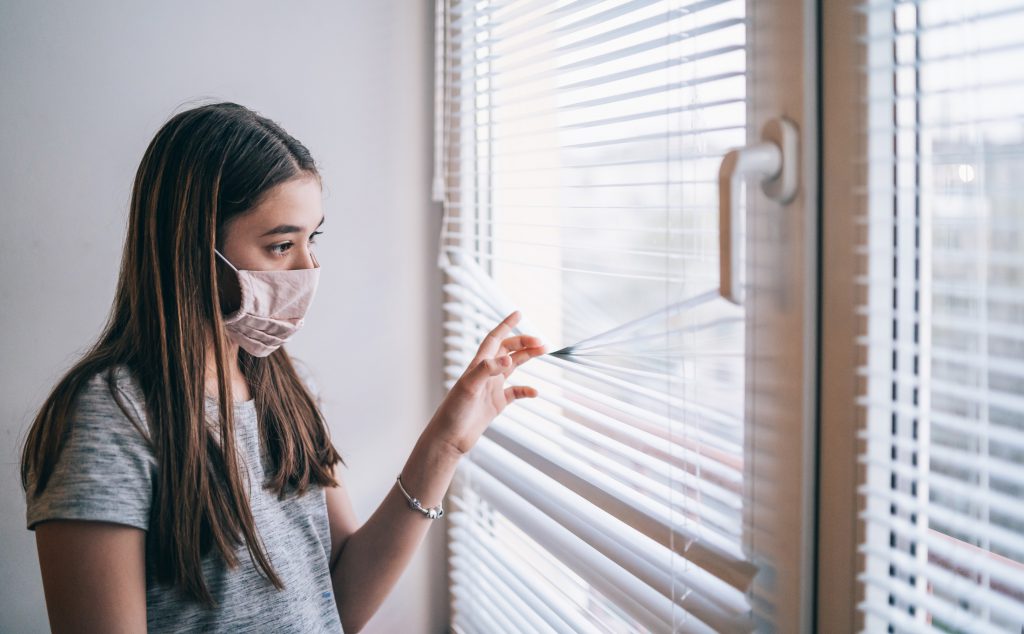As more individuals across the United States are getting vaccinated, many of the places that were forced to close due to the pandemic are slowly beginning to re-open and other social distancing restrictions are being lifted.
For some, these are signs that the country is returning to a degree of “normalcy” and is reason for excitement. For others however, the lifting of these restraints can evoke feelings of uncertainty, stress, fear, and anxiety.

Those who are experiencing these emotions might be living with a condition referred to as “Re-Entry Anxiety”, which is characterized by the stress encountered while attempting to return to a normal lifestyle. Those who experience reentry anxiety may have feelings of uneasiness about returning to work or school, are uncomfortable at social gatherings regardless of the size, and avoid human contact such as handshakes or hugs.
Re-entry anxiety is not an uncommon condition. According to experts, nearly 50% of Americans admit to feeling anxious about resuming in-person interactions after it is acceptable to do so. The same research also concluded that those who were vaccinated expressed the same level of concerns as those who have not yet been vaccinated. History has also taught us that the number of people presenting with mental health conditions, such as agoraphobia or obsessive compulsive disorder tend to increase following public health crises, such as after the recent SARS and Ebola outbreaks.
There are a few things those dealing with re-entry anxiety can do to ease themselves back into social situations, these include:
- Giving yourself permission to be anxious – Don’t judge yourself for whatever feelings you may be having. Understand that your feelings are natural, normal, and shared by many.
- Starting
small –Rather than thrusting yourself into an overwhelming environment, start
gradually with brief, one-on-one interactions with a trusted friend. Try going
for a short walk or sitting at an outdoor café.
- Confronting
your fears – If you are feeling anxious about something, it is best to address
the issue as soon as possible. The
longer you wait, the harder it will be to overcome it.
- Creating
a bucket-list – Think about the things you have missed that bring you the most happiness.
Setting a goal to do these things once again can shift your focus from anxiety
to optimism and joy.
- Buddy-up
– If you know someone who has similar levels of anxiety, work through your anxieties
together. You can support each other and provide the strength to get through
the otherwise difficult re-entry process.
- Focusing on the facts – By relying on trusted sources, such as the CDC and state and local health departments will help you make informed decisions about the best and safest course to reintegrate yourself into normal activities.
While some may find these tips helpful, it is important to understand that there is no right or wrong way to overcome re-entry anxiety. We all had different experiences that affected how we coped during the pandemic; therefore everyone may have different factors that determine their reentry process.
For some, reentry might require professional assistance. The good news is help is available. There are many individual or group therapy options available either in-person or via telemedicine. To make an appointment at Jamaica Hospital’s outpatient mental health center, please call 718-206-5575.
All content of this newsletter is intended for general information purposes only and is not intended or implied to be a substitute for professional medical advice, diagnosis or treatment. Please consult a medical professional before adopting any of the suggestions on this page. You must never disregard professional medical advice or delay seeking medical treatment based upon any content of this newsletter. PROMPTLY CONSULT YOUR PHYSICIAN OR CALL 911 IF YOU BELIEVE YOU HAVE A MEDICAL EMERGENCY.
